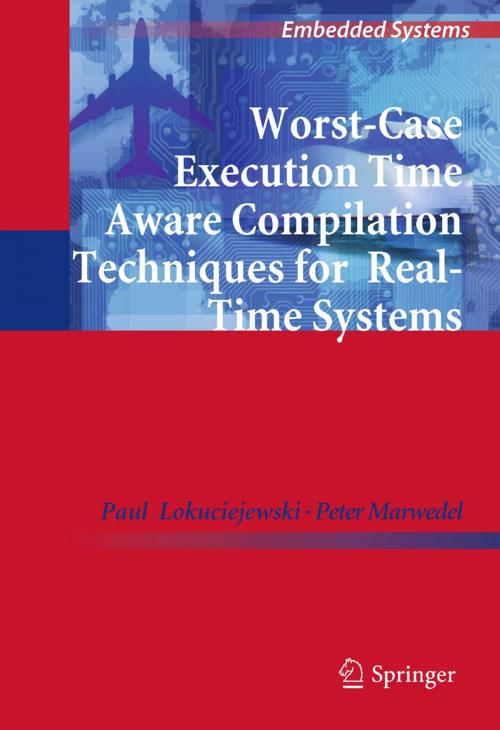Worst-Case Execution Time Aware Compilation Techniques for Real-Time Systems
Nonfiction, Science & Nature, Technology, Electronics, Circuits, Computers, Programming, Programming Languages| Author: | Paul Lokuciejewski, Peter Marwedel | ISBN: | 9789048199297 |
| Publisher: | Springer Netherlands | Publication: | September 24, 2010 |
| Imprint: | Springer | Language: | English |
| Author: | Paul Lokuciejewski, Peter Marwedel |
| ISBN: | 9789048199297 |
| Publisher: | Springer Netherlands |
| Publication: | September 24, 2010 |
| Imprint: | Springer |
| Language: | English |
For real-time systems, the worst-case execution time (WCET) is the key objective to be considered. Traditionally, code for real-time systems is generated without taking this objective into account and the WCET is computed only after code generation. Worst-Case Execution Time Aware Compilation Techniques for Real-Time Systems presents the first comprehensive approach integrating WCET considerations into the code generation process. Based on the proposed reconciliation between a compiler and a timing analyzer, a wide range of novel optimization techniques is provided. Among others, the techniques cover source code and assembly level optimizations, exploit machine learning techniques and address the design of modern systems that have to meet multiple objectives.
Using these optimizations, the WCET of real-time applications can be reduced by about 30% to 45% on the average. This opens opportunities for decreasing clock speeds, costs and energy consumption of embedded processors. The proposed techniques can be used for all types real-time systems, including automotive and avionics IT systems.
For real-time systems, the worst-case execution time (WCET) is the key objective to be considered. Traditionally, code for real-time systems is generated without taking this objective into account and the WCET is computed only after code generation. Worst-Case Execution Time Aware Compilation Techniques for Real-Time Systems presents the first comprehensive approach integrating WCET considerations into the code generation process. Based on the proposed reconciliation between a compiler and a timing analyzer, a wide range of novel optimization techniques is provided. Among others, the techniques cover source code and assembly level optimizations, exploit machine learning techniques and address the design of modern systems that have to meet multiple objectives.
Using these optimizations, the WCET of real-time applications can be reduced by about 30% to 45% on the average. This opens opportunities for decreasing clock speeds, costs and energy consumption of embedded processors. The proposed techniques can be used for all types real-time systems, including automotive and avionics IT systems.















